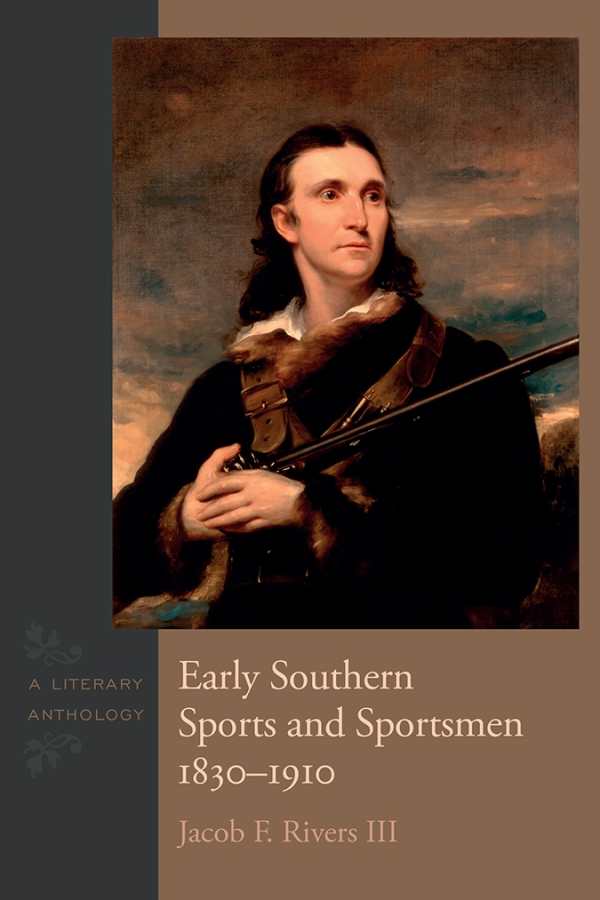Early Southern Sports and Sportsmen, 1830--1910
A Literary Antholgoy
The dozen literate and usually affluent hunters and fishermen in the South during the nineteenth and early twentieth centuries whose writings comprise this anthology depict an environmental sensitivity that has been undervalued, Jacob F. Rivers III argues in his introduction. Most of them back up his contention, more or less, although it’s difficult to think of Davy Crockett (1786-1836), of Alamo fame, as an environmentalist when he brags of killing 105 Tennessee bears in less than a year.
More to Rivers’s point is William Elliott (1788- 1863), a member of South Carolina’s planter aristocracy, who stressed etiquette alongside the consequences of overhunting. “Thus thinking of the value of amusement in general, and of hunting in particular,” he wrote, “I cannot but perceive with regret that there are causes in operation which have destroyed … to the extent, that, in another generation, this manly pastime will no longer be within our reach.”
There is plenty here for those participants in the “manly pastime” who love to commune with nature but yearn for a successful hunting or fishing outing with maybe a sprinkle of down-home dialogue. Enter Alexander G. McNutt (1802-1848), a governor of Mississippi. He wrote hunting stories under a pseudonym, “Turkey Hunter.” One of his main characters was called Chuckey, who claims, “I walks the water, I out-bellars the thunder, and when I get hot, the Mississippi hides itself!”
Reviewed by
Thomas BeVier
Disclosure: This article is not an endorsement, but a review. The publisher of this book provided free copies of the book to have their book reviewed by a professional reviewer. No fee was paid by the publisher for this review. Foreword Reviews only recommends books that we love. Foreword Magazine, Inc. is disclosing this in accordance with the Federal Trade Commission’s 16 CFR, Part 255.

